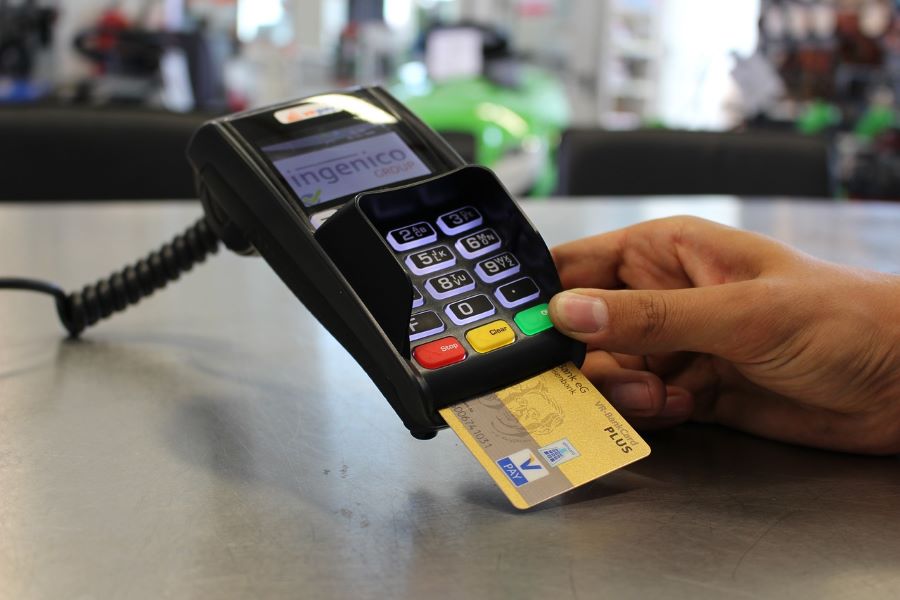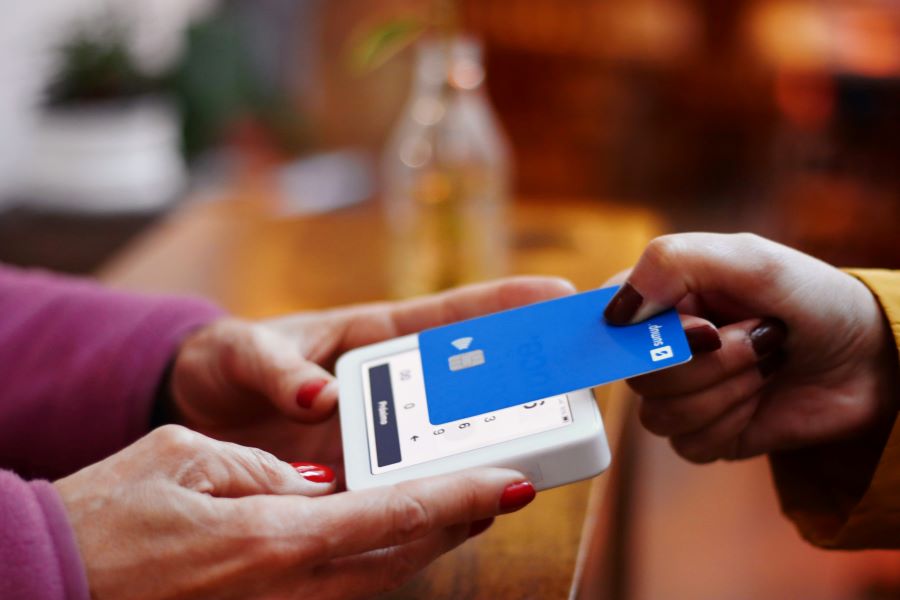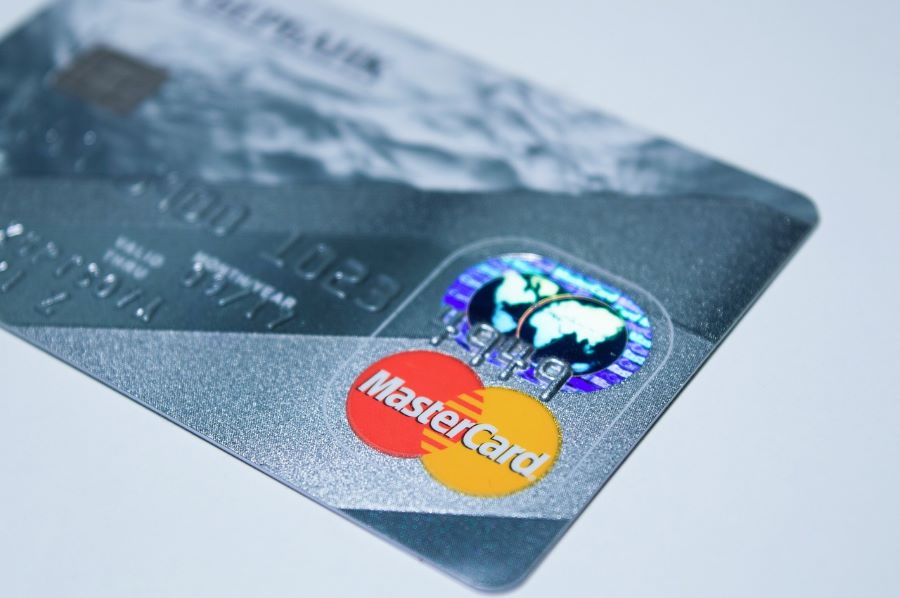A credit card is a financial tool that allows you to borrow money from your bank to cover your important expenditures while offering you the option of returning the amount later. A credit card provides you with a line of credit that you may use to make needed payments. This sum, however, must be returned to the bank by the due date mutually agreed upon by the bank and you. With the Airtel Axis Bank Credit Card, you get amazing benefits and rewards on every spend. Let us discover further about credit card and how it works in this blog.
Also Read: Withdraw Cash from Credit Card
How Does a Credit Card Work?
A credit card is an unsecured loan in which a bank or NBFC agrees to provide you with a predetermined credit limit. You can make transactions up to the specified limit and pay them back on the due date, or you can turn the transaction into an EMI and pay it over a few months.
Now that you understand how a credit card works, let us see what occurs when you swipe it at a POS (Point of Sale) system. To do so, you must first understand the parties engaged in the process.
- Merchant- The merchant or shopkeeper is the person or business from which the purchase is made.
- Acquirer Bank- The acquirer bank is the merchant’s bank.
- Network- This network aids in transaction facilitation. Visa and Mastercard are the most common.
- Issuer Bank- This is the bank that will issue you the credit card.
Let’s have a look at what happens when you swipe the card at a retailer-
- Authorization- Your card will be swiped or inserted into a POS machine by the shopkeeper. You will be prompted to enter a PIN. The network will check to see whether there is enough money in your account, and if so, the transaction will be approved.
- Batching- All receipts collected by the merchant during the day are transmitted to the bank for payment.
- Clearing- The acquiring bank makes a request to the appropriate issuing bank over the network. After subtracting the interchange fees, the issuing bank pays the balance to the acquiring bank.
- Funding- The acquirer bank will subtract the merchant fees and pay the merchant after receiving the payment.
Also Read: What is minimum amount payment due in credit card? Let’s find out!
How Does a Credit Card Work Online?
When you use your credit card to make an online transaction, the e-commerce merchant will request the following information-
- Credit card information
- CVV and expiry date
- Your name
- Payment information
When you select the ‘Pay’ option, the information is transmitted to your bank via a payment gateway. For authentication, the banks will issue an OTP to your registered mobile number or email address. The transaction will be completed after the proper OTP is entered.
Also Read: Ways to check your credit score online – Detailed guide
Types of Credit Cards
Here is the list of different types of credit cards-
Rewards Credit Card
Credit cards that provide rewards often offer points or cash back depending on a percentage of your expenditure. Some programs provide extra points in popular areas such as groceries, petrol, and eating out.
Students Credit Card
Student credit cards are like “starter” credit cards in that they are created for young individuals with little or no credit history. These cards’ application standards are less stringent, making acceptance simpler than with a regular credit card. Most student credit cards do not have an annual fee, and many provide incentives for every dollar spent as well as additional advantages for high grades. Signing up for a student credit card can help young people develop credit and create healthy financial habits if handled carefully.
Travel Credit Cards
Travel credit cards allow you to earn incentives geared for frequent travel, such as flexible credits that can be used against any travel purchase or points that can be transferred to airline or hotel programs. Some travel credit cards also allow you to earn points inside a particular program, such as a frequent flyer program or a hotel loyalty program.
Business Credit Card
Business credit cards allow you to separate your personal and business costs while earning rewards on all business spending. Business credit cards, like personal rewards cards, might be cash-back credit cards, general rewards credit cards, travel credit cards, or even secured credit cards. To be eligible for a business credit card, you must own a business or engage in an income-generating activity.
Cash Back Credit Card
With rewards schemes that differ per card, cash back credit cards make it simple to earn cash back or statement credits on your spending. Some solutions in this category provide a flat rate on your expenditure, whilst others provide bonus points in specific categories such as eating or vacation. Some even provide quarterly bonus rewards in rotating categories, as well as a set rate of rewards on all non-bonus purchases.
Store Credit Card
Store credit cards are issued by retailers to allow you to charge your purchases and pay them off over time. Store credit cards are often used just at the store that offers them, while certain store credit cards may be used across many establishments.
Secured Credit Card
Most credit cards are unsecured, which means you don’t have to put any money down as collateral. Secured credit cards, on the other hand, need a cash deposit to secure a small line of credit, generally for the same amount.
Also Read: What is credit score and its importance?
Credit Card Interest Rates
All credit cards include an interest-free period ranging from 20 to 50 days during which you are not charged for making payments with your credit card. However, credit card interest rates apply in some instances, notably when you do not pay your credit card balance in full or when you withdraw cash with your card. Before applying for a credit card, you should be informed of the interest rate that will be charged, as well as when and how much it will be charged. For example, the Airtel Axis Bank Credit Card interest rate is 3.6% per month (52.86% per annum).
Credit Card Billing Cycle
Each month, your credit card billing cycle is displayed on your card statement. It is also indicated on the welcome document that came with your credit card. You can adjust your credit card billing cycle by contacting your credit card company. However, according to the RBI’s 2022 regulations, the billing cycle can only be changed once. As a result, you must examine your cash flow before updating the billing period, as it cannot be changed again.
Also Read: Get Airtel Axis Bank Credit Card Without Any Joining Fees!
Conclusion
Now that we’ve explained the process of a credit card, how about heading over and getting an Airtel Axis Bank Credit Card for yourself.


 Get App
Get App  Airtel Store
Airtel Store  Login
Login 


